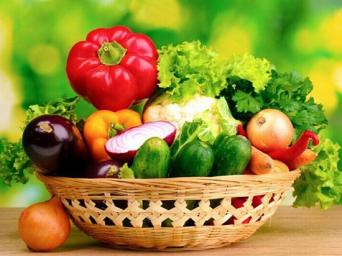Plants and Food
The more you know about plants and foods, the healthier you will be. Some foods can provide you with essential vitamins to keep you healthy, but some foods can make you sick. It is very important to know how to distinguish between the two. You also need to learn how to keep foods safe and prevent them from spoiling. There’s so much to learn.
There is a lot to learn about plants people eat, such as how to grow them and how to prepare them for eating. Scientists can learn how to keep them safe to eat. Sometimes people who don’t know something can make a mistake. For example, some mushrooms are poisonous, and people need to know which those are so they don’t eat them. People need to know about plants in order to stay healthy.
If you don’t know about foods and plants, you can make a big mistake. You need to know which plants are safe to eat. At one time, people feared the tomato, because they believed it to be poisonous. They thought it was dangerous because it grows on a vine that looks like a poisonous plant called nightshade. Therefore, in the early 1800s, people in the United States were afraid to eat it. It took several years before the tomato was accepted as a food in the United States. Today, it is a big part of the American diet. It's found in things like soup and ketchup.
Any food can become a source of sickness if it's not stored safely. Tomatoes can be dangerous if they rot, and so can most other foods if they are not stored properly. One way to store food safely is to dry it. Before people invented cans, they used to dry food to store it for long periods of time. For example, they would dry tomatoes in the sun. Today, people still eat sun-dried tomatoes.
Some plants actually help keep people safe, for example, cloves. No one really knows how people figured that out, but it was most likely from someone trying to use cloves to flavor their food. Cloves have a nice, spicy taste.
The clove plant was first found on islands sometimes called the Spice Islands. A tree grows there; it's a tree that makes cloves. These cloves actually are buds from that tree. The people on the islands picked the buds; the buds were pink when people picked them, and then they dried and turned dark. When they were dried, people put them with food, and they made the food taste great. Probably, the people found that they also helped to preserve foods. Cloves help meat and other foods keep from spoiling.
Today we know why cloves help food stay safe. Scientists have studied cloves and have discovered that cloves contain a kind of oil in them called eugenol. That oil is an antiseptic. Antiseptic is a word with two important parts. The prefix anti means against, and the root sepsis means poisoning. In other words, eugenol helps prevent poisoning. It’s a good thing we have scientists to help us stay safe.
Scientists are people who have careers learning about plants and food. They study the history of plants, and they observe them in order to learn how to make them grow better. They study how to keep them safe, which in turn helps people live healthier lives.
